8 Motivating Ways to Stay Active After You Retire

Many people spend their entire working lives looking forward to the day they can finally retire. However, those same people may also struggle with feelings of loneliness, boredom, or even depression as they adjust to a different pace of life. Finding your new daily rhythm and purpose can help you regain your sense of self—and staying physically active is one of the best ways to do so. However, many wonder how they can motivate themselves to stay active after retiring.
“Remember, retirement doesn’t have to mean slowing down,” says Andrew White, a certified fitness expert and the owner of Garage Gym Pro. “It’s an opportunity to reinvest in your health and wellness without the time constraints of a nine-to-five job.”
With that in mind, read on to hear from White and other fitness experts about how you can prioritize your well-being and make the most of this next chapter.
RELATED: If You’re Over 65, Don’t Wear These 6 Clothing Items to Exercise.
1
Establish a routine.

One of the most challenging parts of retirement is suddenly finding that your days lack structure. It’s not uncommon to wonder how to fill that time, or for the days to start to blend together. That’s why establishing an exercise routine will not only keep you healthy in your golden years—it will also help you regain control over your daily schedule, says White.
“I cannot stress enough the importance of a daily exercise regimen for seniors, but it doesn’t have to be an intense workout. For some of my clients, a brisk 30-minute walk, gentle yoga, or swimming laps in the community pool has worked wonders. The key is consistency,” he tells Best Life.
2
Find a hobby you love.
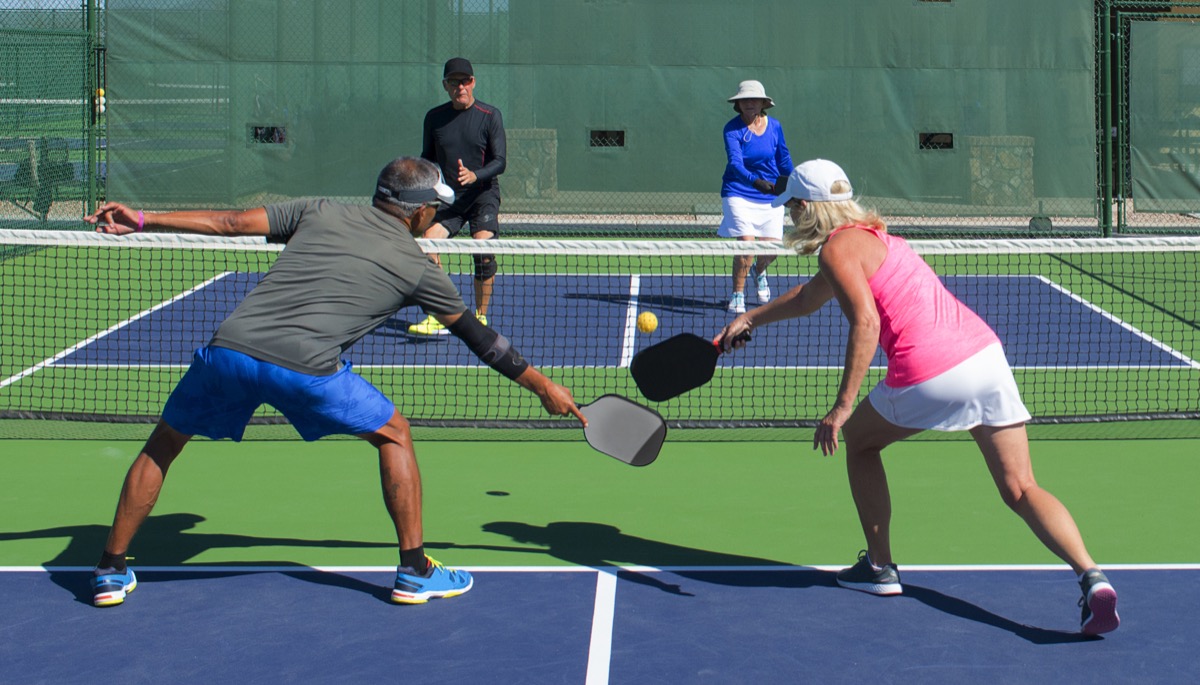
If going to the gym hasn’t been a part of your regular routine up until now, you may find it a difficult transition in retirement. However, White says it’s just as beneficial to lean into any physical activity or hobby you enjoy.
“Retirement is an excellent opportunity to learn new skills that also get you moving,” he says, noting that dancing, golfing, gardening, and Tai Chi are all popular choices among his clients. “These hobbies not only kept them physically active but also mentally engaged. Picking up a new hobby can stimulate neural plasticity, improve memory, and reduce the risk of cognitive decline.”
RELATED: 5 Tips to Become a Pickleball Pro This Year.
3
Join a team sport.
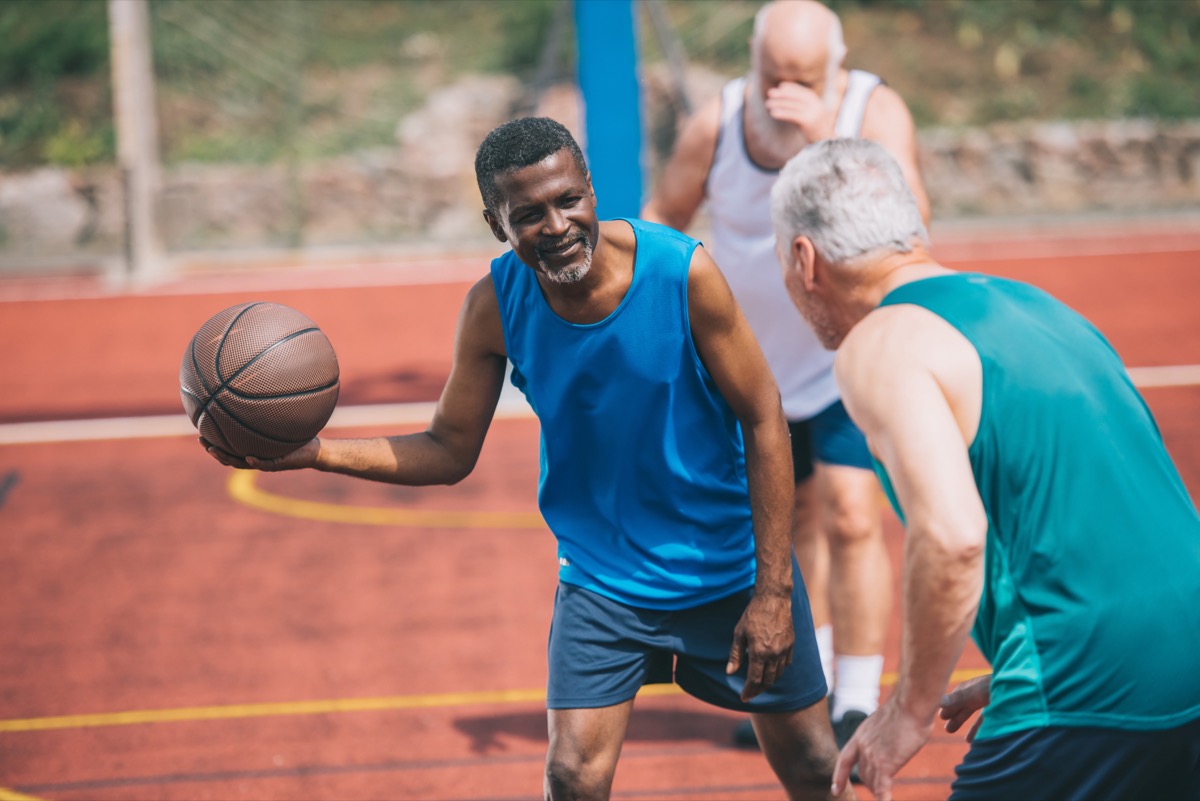
While any hobby will help you stay more active, joining a team sport comes with the added benefit of providing you with built-in social connections.
“Social engagement has been shown to improve mental health, decrease feelings of isolation, and even lower the risk of dementia,” says White. “Plus, working out in a group setting can provide the added motivation to push yourself a little harder.”
Kevin Le Gall, a fitness expert and the owner and lead editor for Climbing House, adds that joining team sports can be beneficial for people of all fitness levels.
“While impact sports may not be the best choice for everyone, there’s likely a league or organization that has options dedicated for every type of athlete,” he tells Best Life. “Passion for your sport helps you come to train every day, which means you’ll be consistent and continue growing.”
4
Don’t sit for too long.

Oftentimes, being sedentary can lower your overall energy levels, making it difficult to rebound for the activities you love. By breaking them up with periodic walks or stretching, you’ll stay more motivated for bigger activities, says White.
“The sudden shift from a work environment to staying at home during retirement often means prolonged periods of sitting. Encourage movement throughout the day by setting regular alarms as reminders to stand up and move around,” he notes.
RELATED: How to Run Safely If You’re Over 50, According to Trainers and Doctors.
5
Stay future-oriented.
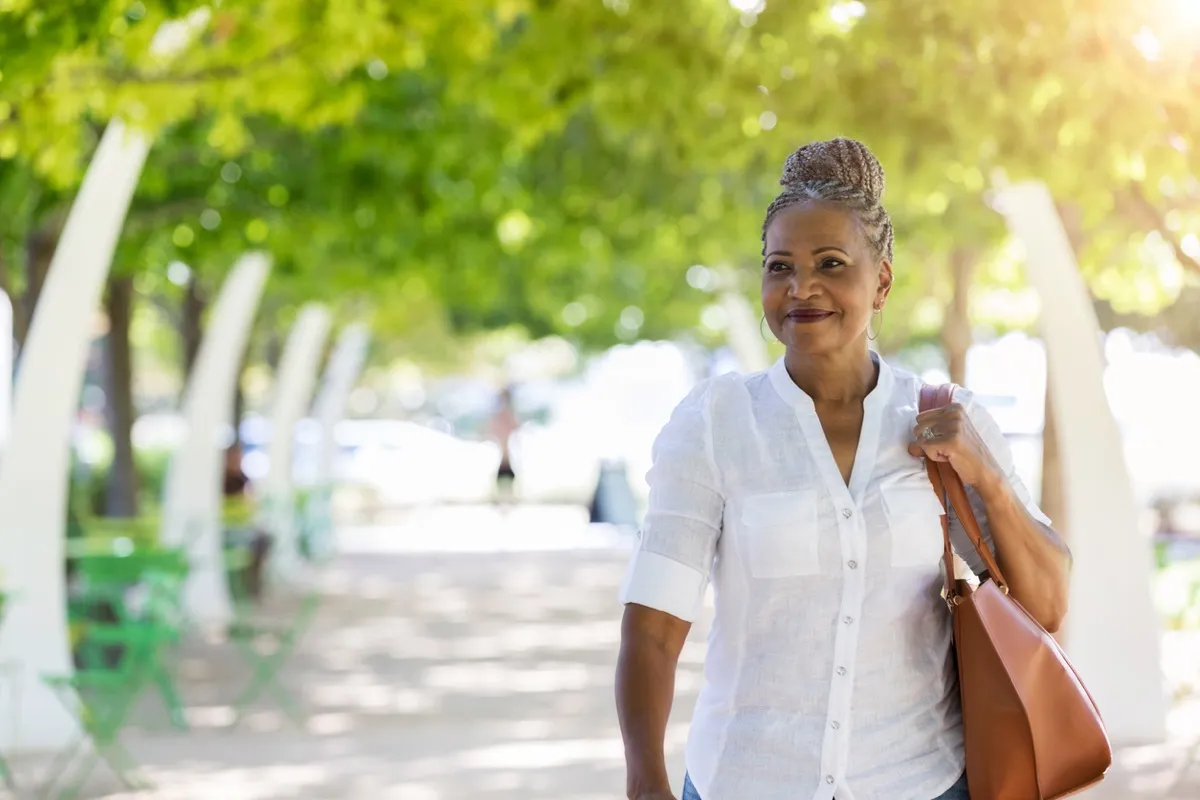
Exercising for just 150 minutes per week can have a tremendous effect on your health outcomes—including a reduced risk of cardiovascular disease, Type 2 diabetes, and certain types of cancer. By focusing on the many tangible ways that staying active can ensure a healthier, happier future, you’re more likely to stay motivated.
“Getting to the point of retiring takes a lot of planning, but once you retire, you still need to keep your future in mind,” says Josh York, the founder and CEO of GYMGUYZ. “Movement can be a cure for many things, so stretching, moving, and staying active is something that will keep you engaged in your body at the present, but also keeps you healthier moving into the future.”
6
Rethink your limitations.

As you age, it’s normal to notice certain changes in your physical abilities or stamina. Yet all too often, we lean into these age-related limitations, believing we’re capable of less than we really are. White says that to get motivated to stay active, it’s important to shake off any preconceived notions about how your age should dictate your day-to-day life.
“Older retirees should be limited only by their doctor and their imagination. My sport, climbing, may seem like it’s impossible for seniors. However, there’s a growing group of older climbers who are taking over the sport and changing how many previously thought about it,” shares White.
“Expanding your horizons, being curious about sports, and trying new things can all help make sure you find the right activity for you,” he adds.
For more health advice delivered straight to your inbox, sign up for our daily newsletter.
7
Focus on flexibility and mobility exercises.
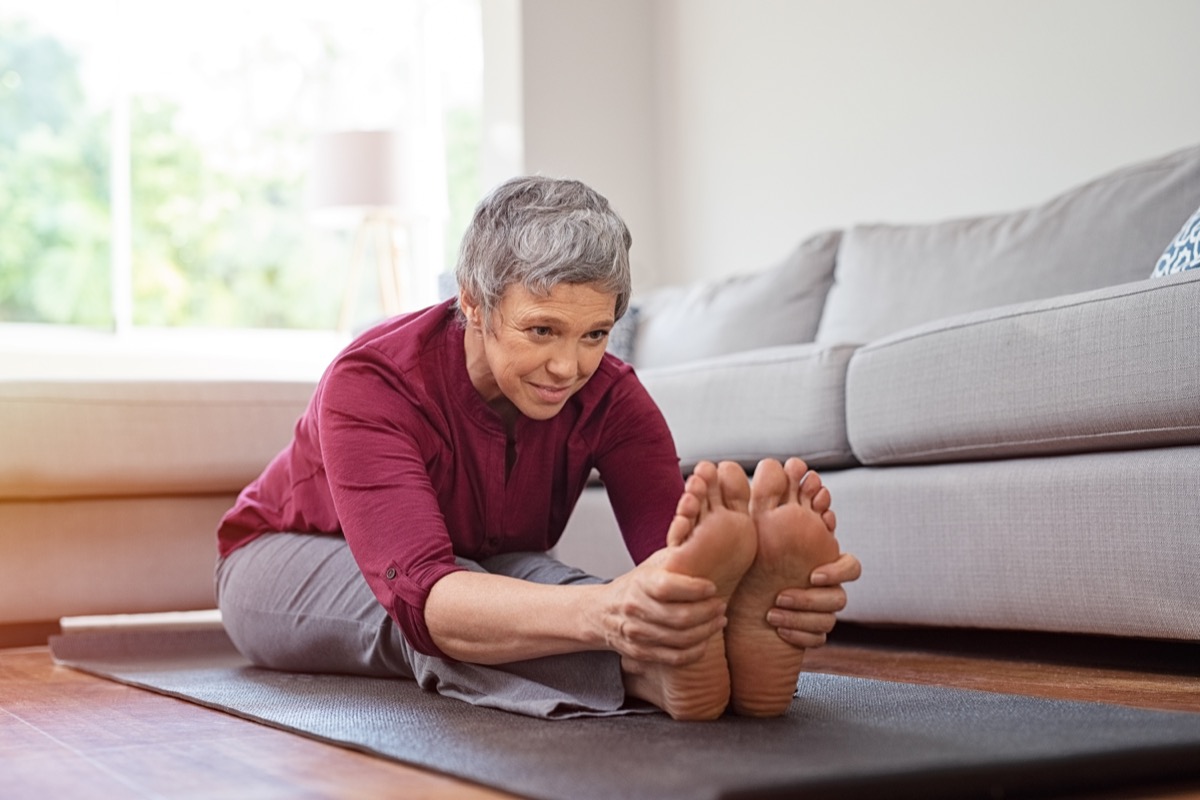
Prioritizing flexibility and mobility workouts can make a major difference in your physical capabilities—and being able to do more with less effort means you’ll stay motivated to keep active.
“I’ve seen a lot of retirees focusing on traditional strength training or cardio activities while often neglecting flexibility and mobility exercises,” says White. “However, these exercises are crucial, especially as we age. They improve joint health, reduce the risk of injuries, and make everyday tasks easier. Stretching, Pilates, yoga, or mobility-focused workouts can all be part of this routine.”
8
Start slowly.
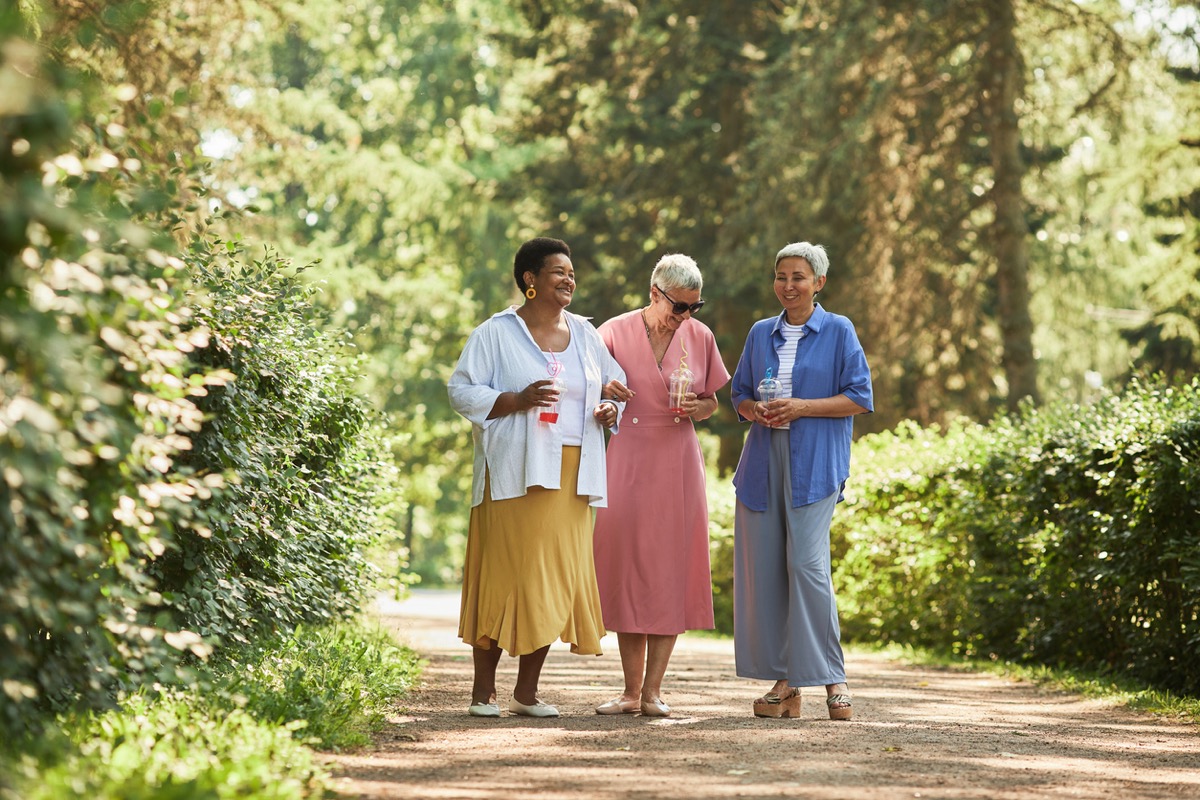
Nothing will stop your motivation in its tracks quite like an early injury. By starting slowly and gradually increasing your activity level, you can help ensure that you stick with your new routine for the long haul.
“While you may want to try and do everything, you may take longer to build the strength, endurance, and balance needed for some sports,” says Le Gall. “Take your time—as a retiree, you can devote more hours to developing technical skill, making you a well-rounded and injury-resistant athlete.”